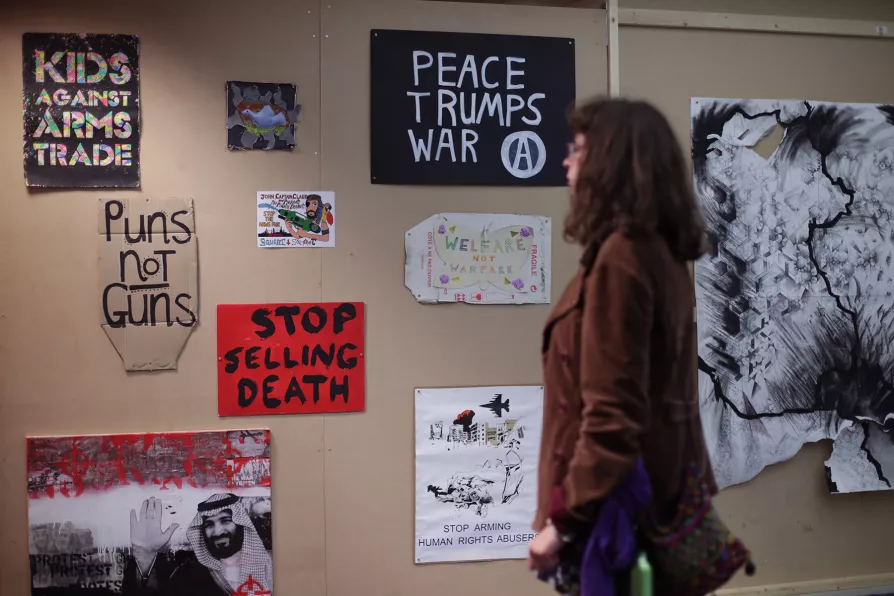The Carpathia isn’t coming to rescue this government still swimming in the mire, writes LINDA PENTZ GUNTER

 Art on display at the Art the Arms Fair art exhibition, set up in opposition to the DSEI arms fair, at Capstan House in east London, 2017
Art on display at the Art the Arms Fair art exhibition, set up in opposition to the DSEI arms fair, at Capstan House in east London, 2017
MILITARY conflict and conquest — and the manufacture and sale of arms — has always been central to capitalism. In 1577 Francis Drake set out to plunder Spanish settlements in South America in search of gold and silver. In the process he also challenged Dutch, Spanish and Portuguese interests in the East Indies.
Soon after the defeat of the Spanish Armada the (British) East India Company received its Royal Charter from Queen Elizabeth in 1600. In 1803 the company had a private army of over a quarter of a million — twice the size of the British army.
Following the defeat of Napoleonic France in 1815, Britain expanded its imperial holdings around the globe and its ruling class enjoyed a century of almost unchallenged dominance. The “Pax Britannica” was in fact a continual series of colonial wars, accompanying a rhetoric of “free trade” that gave British capital its dominant position in world commerce.

From hunting rare pamphlets at book sales to online panels and courses on trade unionism and class politics, the MML continues connecting archive treasures with the movements fighting for a better world, writes director MEIRIAN JUMP

RMT’s former president ALEX GORDON explains why his union supports defence diversification and a just transition for workers in regions dependent on military contracts, and calls on readers to join CND’s demo against nuclear-armed submarines on June 7












